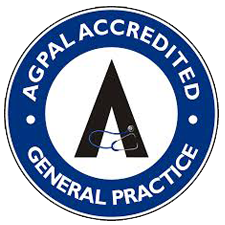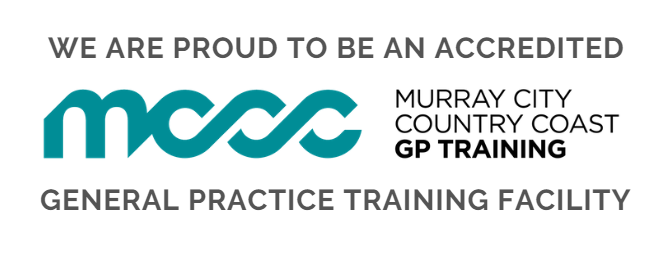HEARING AWARENESS WEEK 20th-26th August, 2017
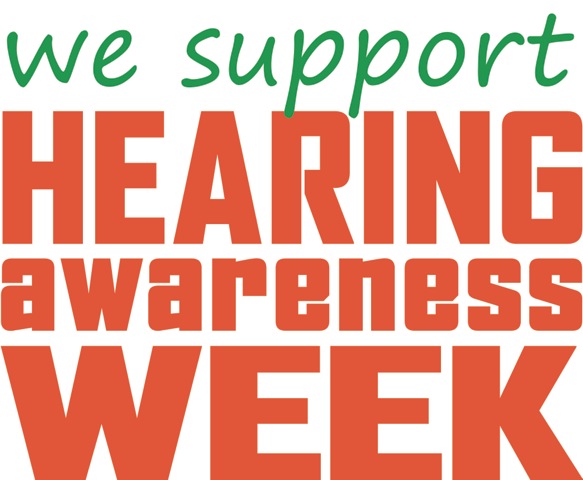
Hearing awareness week plays a role in recognising people suffering from hearing impairment or deafness. Some people are born with hearing loss, some people may suffer with hearing impairment or deafness as a result of a condition or an injury and others develop it as they get older.
One in six Australians are hearing impaired, deaf or has an ear disorder of some description. Damage to your hearing is often a gradual process and the effects of noise exposure are permanent.
If you or your child is having hearing problems you should see your GP. They will check your ear for problems such as earwax or a perforated eardrum. They may have to refer you to an audiologist or an ENT surgeon for further tests.
SPEECH PATHOLOGY WEEK- 20th-26th August, 2017
Speech Pathology Week is about promoting the great work speech pathologists do. More than 1.1 million Australians have a communication or a swallowing disorder that impacts on their daily life.
A speech pathologist helps diagnose and treat communication disorders. They help people that may suffer with problems such as: speaking, listening, understanding language, reading, writing, social skills and stuttering. They also may work with people that have suffered from a stroke, brain injuries, learning disabilities, cerebral palsy and dementia to name a few. They can also play a fundamental role in infants to school age children’s speech development.
People who experience difficulties swallowing food and drink safely can also be helped by a speech pathologist.
You don’t need a GP referral to see a speech pathologist but talking to your GP or child and family health nurse is a good place to start if you’re worried.
Jeans for Genes Day
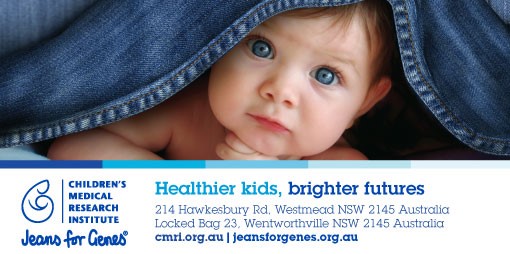
On the first Friday of August, every year Australia unites by wearing their favorite jeans and donating money to support genetic research, helping scientists at the Children’s Medical Research Institute. Research is aimed at genetic defects and childhood diseases and money raised helps to discover treatments and cures to give children the opportunity to live long and healthy lives.
It is a great cause that the staff at Ontario Medical Clinic continues to support each year.
National Pain Week 24th – 30th of July 2017

National Pain Week is an annual initiative for Chronic Pain Australia. It aims at promoting the latest research and information to the wider community. This year is aimed at the theme ‘let’s manage pain together’ aiming to reduce the isolation often felt with chronic pain. It is a great way to bring health care professionals, sufferers, families and friends together to share their experiences and discuss treatment options.
Chronic pain is referred to as pain that doesn’t go away after an injury or illness and that lasts at least 3 months. There are different types of chronic pain. These include nerve pain, pain from bones, muscles and joint pain as well as cancer pain. Chronic pain can range from mild to severe. Chronic pain can have significant impact on a person’s ability to work, form relationships and live an ordinary life. It often has serious detrimental effects on sufferers’ mental health. More than half of Australian adults with chronic pain become anxious or depressed because of their pain so it is important to treat this if it happens.
Dry July
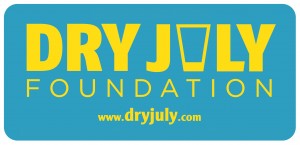
Dry July is a fundraiser raising much needed funds for people affected by cancer. Funds raised through Dry July go towards cancer supporting organisations across Australia to help improve patient comfort, care and wellbeing.
Having a month off alcohol/reducing your alcohol intake can have a great impact on your wellbeing. Excessive drinking can cause an upset stomach, indigestion and headaches just to name a few. Drinking less means that you get a better quality sleep because alcohol interferes with the normal sleep process. Reducing your alcohol consumption will make you feel better in yourself, more alert and brighter.
Alcohol is also heavy on calories, a bottle of wine with 13% alcohol has a whopping 682 calories. So cutting down is a great way to stay in shape. Drinking less reduces the risks of alcohol related cancers, diabetes, heart disease and puts less pressure on the liver. Most importantly it is about staying healthy for longer.
So why not challenge yourself and commit July to being dry!!!
My Health Record
The My Health Record (previously the Patient Controlled Electronic Health Record or PCEHR) is available to all patients and is a secure online summary of all of your health information.
You have control over what information is contained in your My Health Record and who has access to the information provided. This information can be shared with your GP and other doctors as well as hospitals and other healthcare providers. This can be helpful if you are travelling or seeing multiple doctors for different health appointments.
At the Ontario Medical Clinic we are able to upload information to your My Health Record for you once you have given us permission to do so.
Registration is easy and can be done online through your myGov account or via the website http://www.myhealthrecord.gov.au/
You can also fill out a form at your next visit to Ontario Medical Clinic and we will do the registering for you.
If you would like more information please speak to your GP or one of the reception staff.
RED NOSE DAY- 30th June, 2017
Red Nose day is held annually on the last Friday in June and is the major fundraiser for SIDS (sudden infant death syndrome).
In Australia nine children die suddenly and unexpectedly every day, Red Nose day is an important way to raise money and awareness. This year the aim is to raise 100,000 towards Red Nose research grants available for Australis’s best researchers to apply for later this year.
Ontario Medical Clinic will have a product box at our front desk for you to purchase Red Noses, Pens, Plush Toys and other products. You can show your support by purchasing one of the products.
World Blood Donor Day-14th June, 2017
There is a great demand in Australia for blood donors. 1 in 3 Australians will need blood in their lifetime but only 1 in 30 actually donate.
There are many reasons why people may need blood donated by others. These may include:
-Bleeding during surgery
-Haemophilia
-Cancer
-Premature babies
-Bleeding due to an accident or injury
-Burn victims
If a person needs blood it will be received via a process called blood transfusion. The donor blood will be matched to the patients and then transfused using an injection in a vein of the arm. Healthy adults are able to donate whole blood every 12 weeks and the procedure is safe and relatively painless. Donating blood only takes around 10 minutes but you should allow at least an hour for the whole process including recovery time.
Some people are not eligible to give blood because it could jeopardize their own health. These include:
-Under 16 or over 70 years of age
-Pregnant
-Are anaemic
-Have a cold or flu (on the day or in the previous 7 days)
-Have low blood pressure
-Have recently given birth
-Weigh less than 45kg’s
-Have a heart condition
-Recent dental work
-Recent travel to certain countries
-Recently had a tattoo or body piecing
After filling in a questionnaire with a nurse you will be asked to sign a declaration stating that you meet the medical guidelines designed to protect the health of both donors and recipients. There will be a brief physical examination that includes blood pressure check, weight and haemoglobin levels. The actual donation process only takes between 5 and 10 minutes after which time you can sit back and relax with some light refreshments. 8 per cent of your total blood volume is taken and your body typically replenishes the fluid lost in 24 to 48 hours while the red blood cells lost are generally replaced in a few weeks.
Australia’s biggest Morning tea
Two things our team at Ontario Medical Clinic like doing is raising money for great causes and eating yummy food. Cancer Council’s biggest morning tea allows us to do both at the same time!
1 in 2 Australians will be diagnosed with cancer by the age of 85. One dollar at a time we can make a real difference helping fund Cancer Council’s vital research, prevention and support service programs.
Get together a group of friends at home, in your community or at work and enjoy a cuppa and a treat all while raising money for a great cause.
Patient Surveys
Thankyou to all of the patients who took the time to complete a practice survey for us in December/January. Your feedback is invaluable in helping us to continue to improve the service that we can offer you. We have now received the survey results back and will do our best over the coming months to make the changes, where possible, that you have taken the time to suggest to us.
Thankyou also to those who took the time to share your kind words with us, it’s nice to know the things that we are getting right as well as the areas that we can do better in. If you would like any further information or have any other feedback you would like to pass on please do not hesitate to speak to Kellyann, Grace or Karalee. You can also provide feedback via the suggestion boxes located in each waiting room if preferred.

